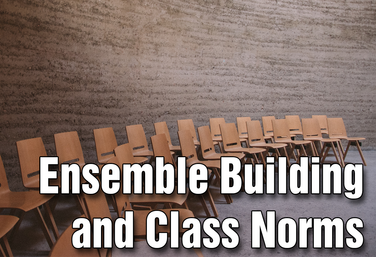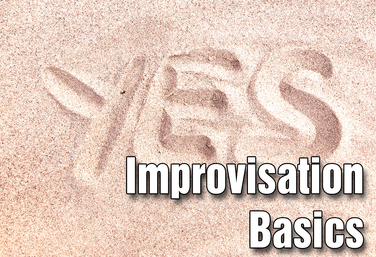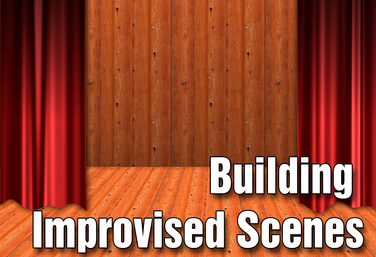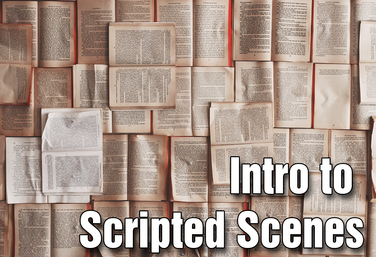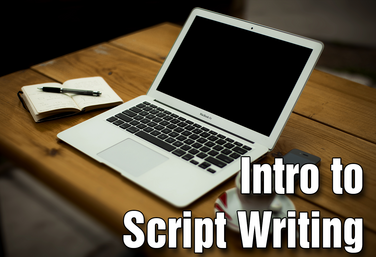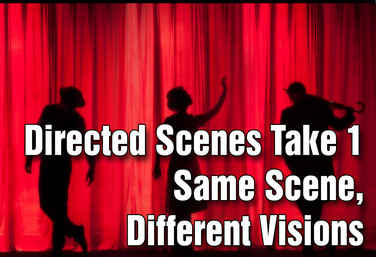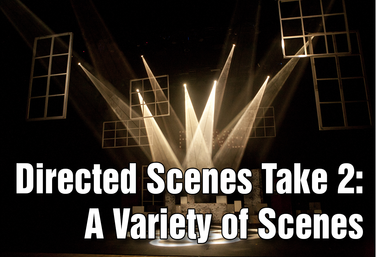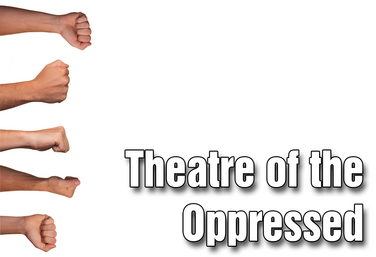Middle School Curriculum
This is a curriculum for a scene study semester at the middle school level. The goal for each unit is to build off the knowledge and skills gained in the previous unit so students are gradually adding to their abilities as they progress through different types of scene performance assessments.
Students begin with the acting basics they need to create a successful scene: ensemble skills, improvisation, projection, vocal clarity and expression, characterization, pantomime, objective and tactics. They will learn script structure, blocking, and stage directions and how to give, receive and apply feedback. They will explore aspects beyond acting such as directing and simple set design.
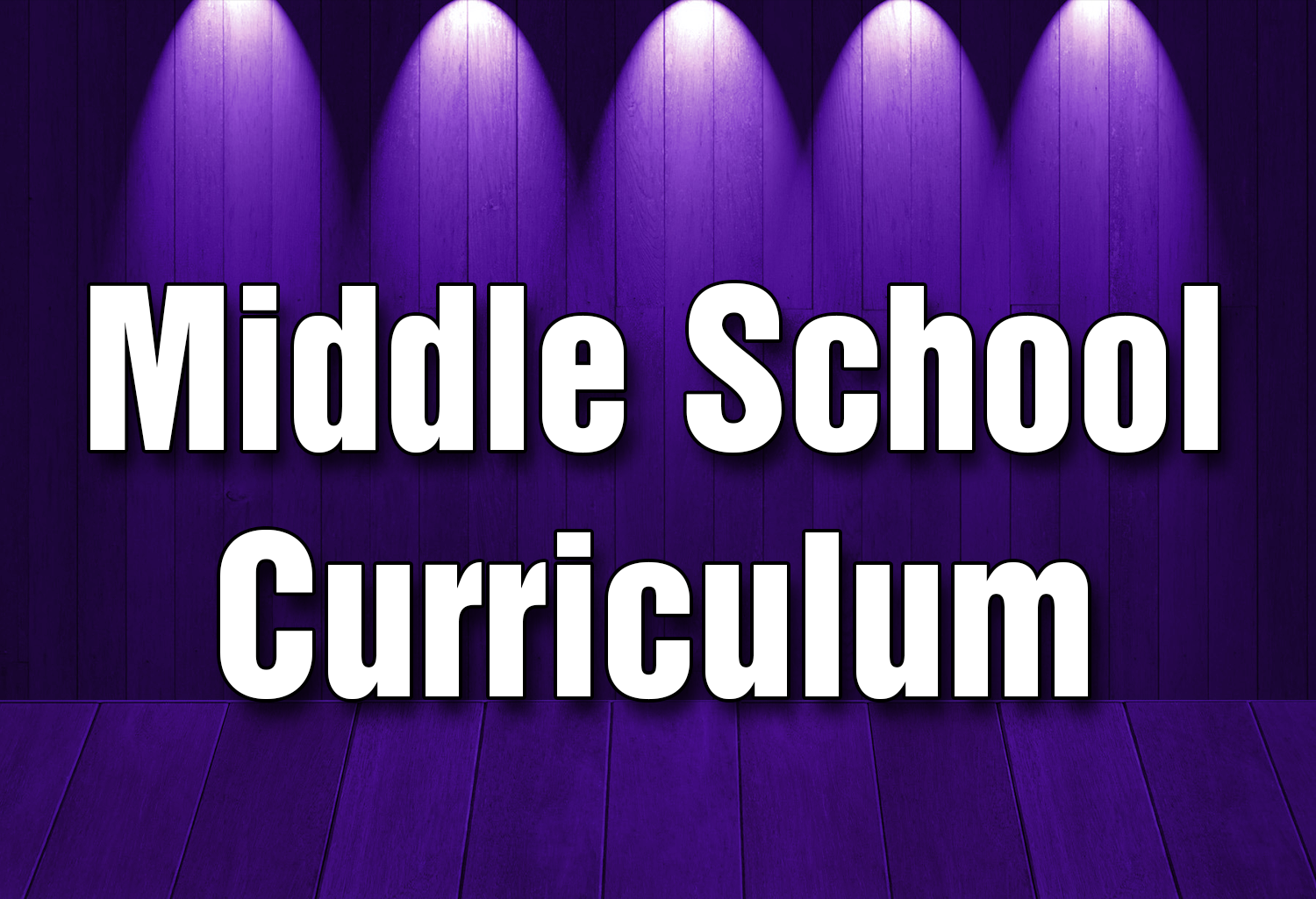
8 Units
Middle School Curriculum: Overview
by Lindsay Johnson
This is a curriculum overview for a scene study semester at the middle school level, designed specifically with 7th and 8th graders. The goal for each unit is to build off the knowledge and skills gained in the previous unit so students are gradually adding to their abilities as they progress through different types of scene performance assessments.
Students begin with the acting basics they need to create a successful scene: ensemble skills, improvisation, projection, vocal clarity and expression, characterization, pantomime, objective and tactics. They will learn script structure, blocking, and stage directions and how to give, receive and apply feedback. They will explore aspects beyond acting such as directing and simple set design.
Students will then continue to practice many of the same acting skills but in new contexts. While there will be some new acting skills added, such as memorization, use of levels, and character physicality, more focus will be placed on learning off-stage skills, such as directing, props, and using theater to identify and address issues in our society through a culminating Theatre of the Oppressed unit.
Unit One: Ensemble Building and Class Norms
by Lindsay Johnson
This unit has six lessons that you can use in the first week of your middle school program. What do you do in the first week? The most important elements are creating routines such as journal prompts, opening and closing circles, and giving strong feedback; creating an ensemble and ensemble-building games; and introducing a Weekly Ensemble Rubric.
Students will define and build ensemble as a group, learning specific ways they can SAY YES and BE SAFE in class. They will understand the daily grading system and the basic routines of class. Finally, students will learn to give strong feedback by connecting specific evidence from performance to the Rubric language.
Unit Two: Improvisation Basics
by Lindsay Johnson
In this unit, students will learn, practice and apply three important rules of improv: accepting and building on offers, quick thinking, and strong offers. For each step, they will work with the Improvisation Rubric by both giving and receiving feedback. Students will also start to practice techniques to improve their vocal clarity. The unit culminates in a performance assessment in which students will play an improv game in front of an audience.
Unit Three: Building Improvised Scenes
by Lindsay Johnson
Students will understand the basic building blocks of a scene: The Who (characters/ relationship), the Where (setting), and the What (conflict – objectives/tactics). They will learn how to use both verbal and nonverbal (pantomime) clues to communicate these scene details to an audience. They will continue to work on voice clarity, while also learning to open their body to an audience. The unit culminates in a performance assessment in which students work in pairs to improvise a scene.
Unit Four: Intro to Scripted Scenes
by Lindsay Johnson
Students will be introduced to the most basic of scripts: the contentless/open scene script. They will use their knowledge of character/relationships, setting, objective, and tactics to add content to a contentless scene. Students will also learn the basics of set design and blocking, and will begin using voice expression to communicate clearer characters. The unit culminates in a performance assessment in which students will work in pairs to add content to and perform a contentless scene.
Unit Five: Intro to Script Writing
by Lindsay Johnson
In this unit, students learn how to write their own scripts using correct formatting. These scripts will be more detailed than the contentless scenes. Students will learn how to write dialogue that provide information about relationships, conflicting objectives, and setting.
They’ll also learn how to correctly add expression and movement directions into the script itself. The unit will end with a partner script writing assignment which is performed in front of the class.
Unit Six: Directed Scenes Take 1: Same Scene, Different Visions
by Lindsay Johnson
Students will now start applying the skills they’ve learned thus far in the context of existing, fleshed-out scripts.
They will also have opportunities to shift from actor to director and hone such skills as collaboration, self-confidence, and problem-solving which can be used in many other areas of their lives.
Unit Seven: Directed Scenes Take 2: A Variety of Scenes
by Lindsay Johnson
Students will have another opportunity to participate in student-directed scenes, only this time each director will be assigned a different script, and actors for each group will be chosen by the teacher based on individual strengths and challenges, rather than holding auditions.
Actors will take a deeper dive into character physicality and use of levels in staging this unit. Directors will continue to create a set design and block the scenes, adding props as well in this unit.
The unit culminates in actors presenting their directed scenes to the class.
Unit Eight: Theatre of the Oppressed
by Lindsay Johnson
Students will have a chance to merge their understanding of scene elements with their improvisation skills in this final unit based on Augusto Boal’s Theatre of the Oppressed. Theatre of the Oppressed is a style of theatre specifically created to highlight the injustices of power and oppression in society and to problem-solve ways to bring about change.
Starting with image theatre techniques to identify issues of power and oppression, students will then use forum theatre to create scenarios of oppression taken from their own lives and improvise realistic solutions.
The unit culminates in a performance in which students participate as both actors in a scene they create themselves and spect-actors in scenes created by their peers.

